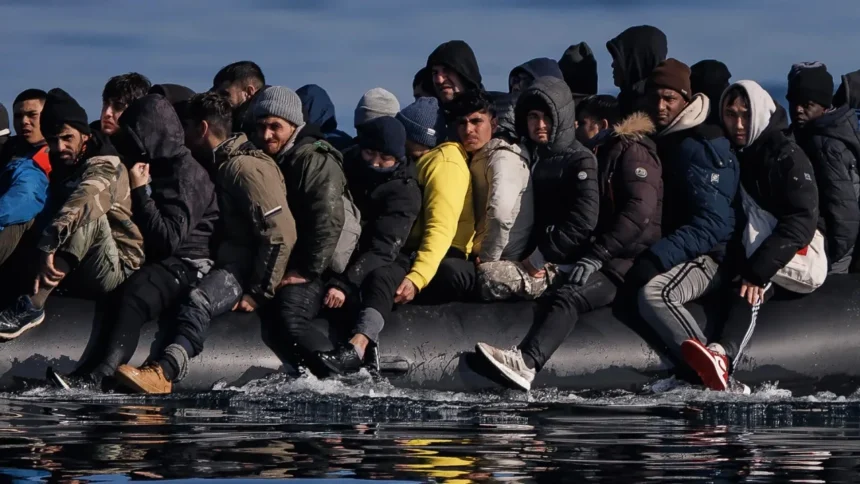The UK government is reportedly considering Kosovo as a location for offshore migrant return centers, following Albania’s rejection of a similar proposal. According to The Times, Kosovo is now on a shortlist of nine countries being evaluated as possible destinations for failed asylum seekers who have exhausted their legal options in the United Kingdom.
Kosovo’s President Vjosa Osmani has stated that the country would be “open to discussions” regarding such an agreement. She clarified, however, that no official negotiations have yet begun. “We would be open to discuss it, but I cannot say more because I do not know the details,” she said.
A Shift in UK Migration Strategy
The potential deal is part of Labour leader Keir Starmer’s evolving immigration strategy, aimed at addressing the record number of small boat arrivals in the UK. Over 13,500 migrants have crossed the English Channel so far this year, marking a 37% increase compared to the same period last year.
With the UK preparing to host a Western Balkans summit in London this autumn, ministers hope to advance talks with potential host nations before the high-profile meeting. Illegal migration is expected to be a key agenda item.
Kosovo’s inclusion is strategically important due to its position on one of the main migration routes into the European Union. According to the UK’s Foreign Office, around 22,000 irregular migrants used the Balkan route to enter the EU in 2024 alone.
Why Kosovo?
British government sources describe Kosovo as a “viable option” due to its geographic location and previous willingness to engage in international agreements on migration and security. In 2021, Kosovo signed a €200 million deal with Denmark to host 300 foreign prisoners, though the deal has not yet been implemented.
Furthermore, the UK and Kosovo signed an agreement last month to deploy British surveillance technology aimed at combatting organized crime and human smuggling through the region.
Legal and Humanitarian Framework
Any migrant return center would have to meet three conditions set by Starmer: it must be affordable, feasible, and legal. The UK’s new plan diverges from the previously scrapped Conservative policy to deport asylum seekers to Rwanda—a scheme that was declared unlawful by the UK Supreme Court.
In a notable shift, the UNHCR has reportedly signaled support for the return center model, a development hailed as a “game-changer” by UK government insiders. The endorsement is seen as crucial after the UN agency played a key role in opposing the Rwanda deportation plan.
European Context
Several European nations including Italy, Germany, Denmark, the Netherlands, and Switzerland are also exploring similar offshore centers. The Netherlands is currently negotiating with Uganda to establish a migrant return facility there.
British Home Secretary Yvette Cooper recently discussed financial arrangements with Balkan countries to accept failed asylum seekers. Kosovo, being one of Europe’s poorest countries with a population of 1.6 million, may be attracted by the economic incentives.
If a deal is struck, it could position Kosovo at the center of Europe’s new migration infrastructure, with wide-reaching implications for its international reputation, EU integration, and domestic stability.







